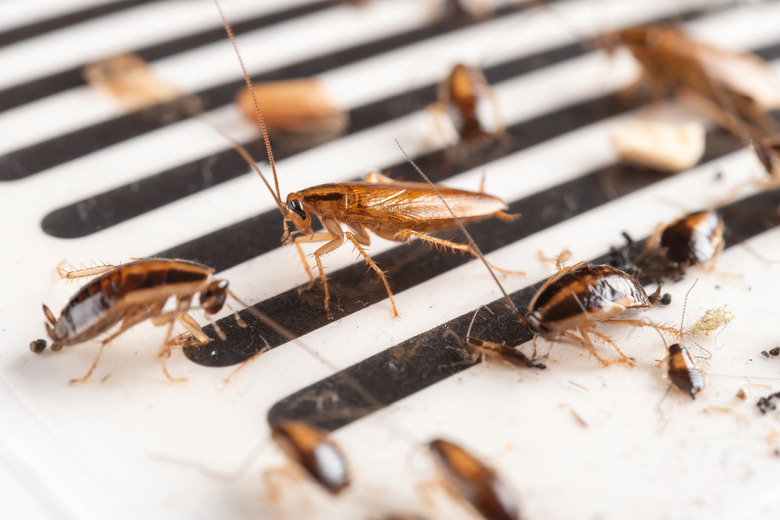Roaches Are Turning Into Superbugs That Are Impossible To Kill
Cockroaches are evolving, and unfortunately, it's not the kind of evolution that makes them any cuter. Nope, instead, these little crawlers are evolving into "superbugs" that are nearly impossible to kill with current pesticides.
It's already pretty hard to control roach populations. But the new, drug-resistant roaches are inching closer and closer to invincibility, according to a new study from Purdue University.
Typically, exterminators use a variety of insecticides to rid homes and workplaces of German roaches, the type you probably think of when you think of the unpopular bugs. Many German roach populations have built up resistance to some chemical insecticide. But by using a variety, exterminators have a better chance of at least one of them working to kill off infestations.
Until Now
Until Now
Researchers at Purdue tested roach infestations in buildings in Illinois and Indiana over the course of six months. They were shocked to find that when given rotating pesticides, infestation numbers either remained the same or increased, indicating that the roaches were developing cross-resistance. That means they were developing immunity to several different classes of insecticides.
Even more surprising to researchers was where that cross-resistance was coming from. It's relatively typical for baby roaches to inherit the resistance that their parents pass on to them. But in this study, the researchers found that in addition to those immunities, offspring had somehow developed resistance to classes of insecticides that neither they nor their parents had been exposed to.
Though not entirely shocked at the ability to develop that resistance, researchers were surprised by the speed of the development, which sometimes happened over the course of just a few months.
So What Do We Do?
So What Do We Do?
We certainly don't just succumb to living under a roach regime. Besides being not the cutest creatures to look at, roaches that live among humans can spread disease and trigger health issues like asthma and allergies.
But pesticides may not be enough to wipe them all out, the researchers of the study noted. Going forward, places with roach infestations might have to launch a multipronged attack, including methods like sanitation overhauls, trapping, and sucking them up with vacuums.
The methods might be more time-consuming and expensive than simply spraying pesticides, but could be necessary unless we want to live in a world where roaches outlive us all.
Cite This Article
MLA
Dragani, Rachelle. "Roaches Are Turning Into Superbugs That Are Impossible To Kill" sciencing.com, https://www.sciencing.com/roaches-are-turning-into-superbugs-that-are-impossible-to-kill-13720002/. 12 July 2019.
APA
Dragani, Rachelle. (2019, July 12). Roaches Are Turning Into Superbugs That Are Impossible To Kill. sciencing.com. Retrieved from https://www.sciencing.com/roaches-are-turning-into-superbugs-that-are-impossible-to-kill-13720002/
Chicago
Dragani, Rachelle. Roaches Are Turning Into Superbugs That Are Impossible To Kill last modified March 24, 2022. https://www.sciencing.com/roaches-are-turning-into-superbugs-that-are-impossible-to-kill-13720002/
